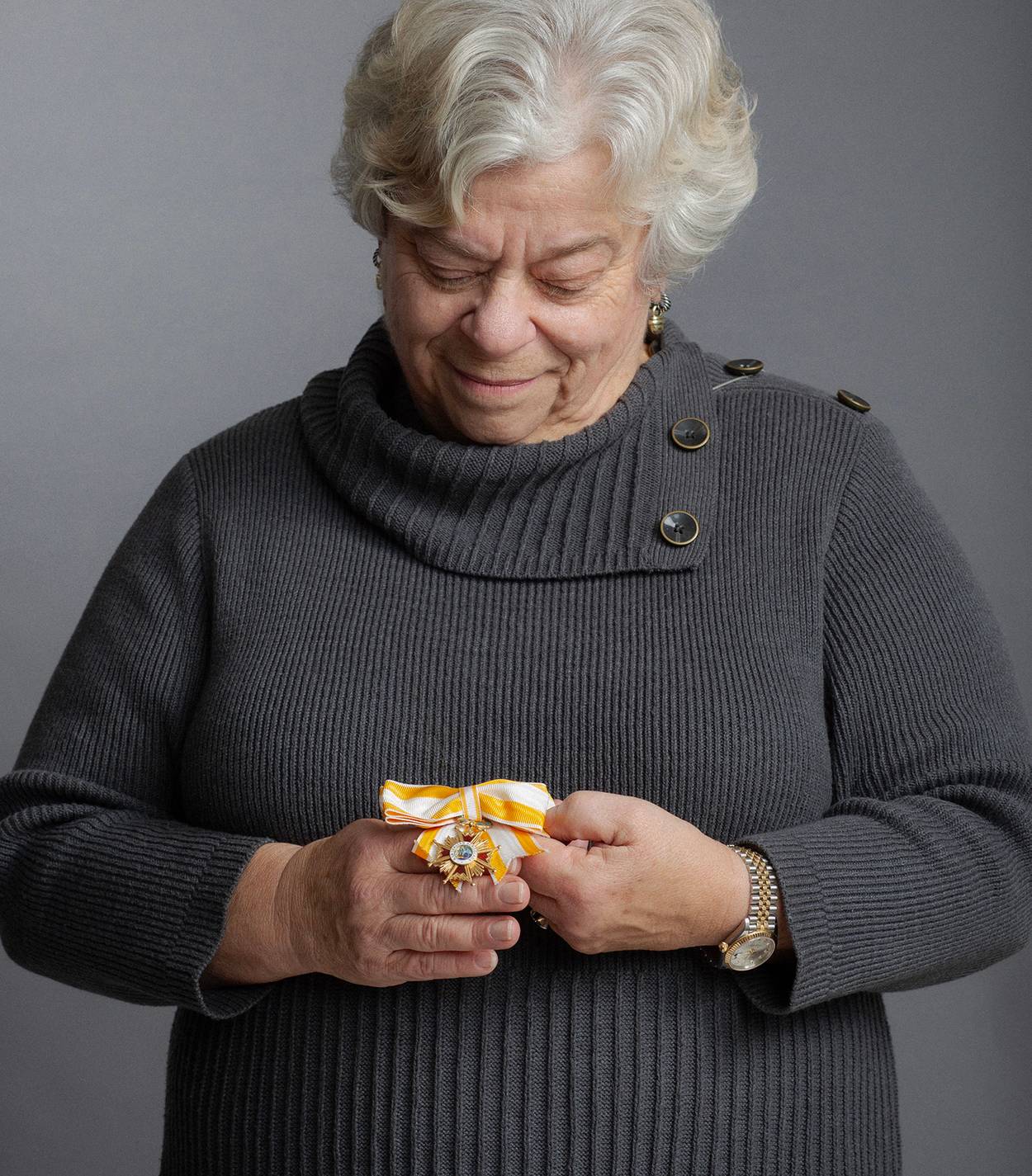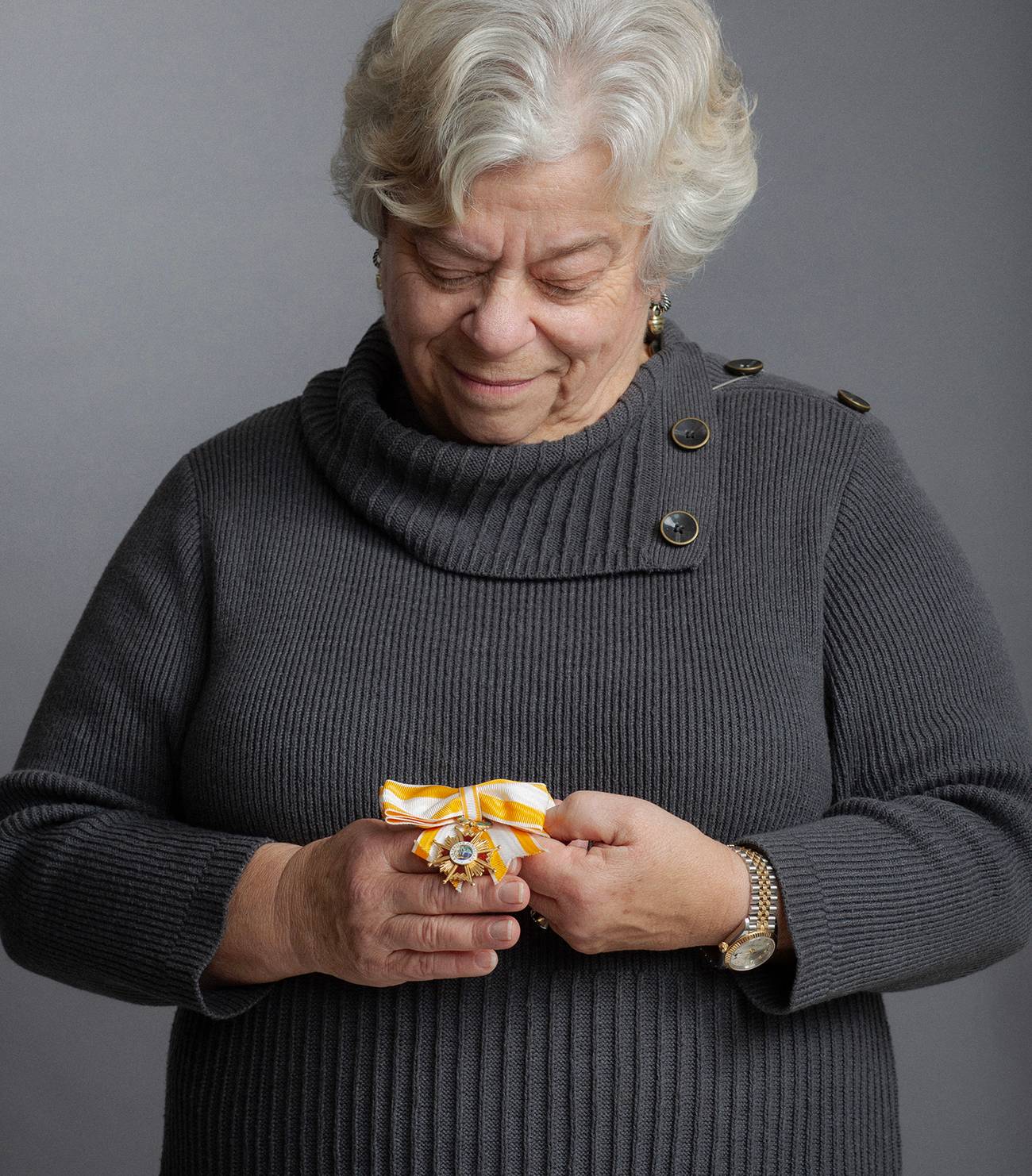The Road to Knighthood
For her efforts in helping Jews regain their Spanish citizenship, Doreen Alhadeff was honored—in Queen Isabella’s name




A funny thing happened to Doreen Alhadeff on the way to getting her Spanish citizenship. What started out as an effort to regain something Spain had taken from her family five centuries ago ended up with her being knighted into an order named after Queen Isabella, who exiled her family in the first place.
Alhadeff has loved Spain ever since she spent two years as a student in the country in 1969. The only thing missing for the then-19-year-old resident was the Jewish culture she grew up with back in Seattle, which has the third-largest Sephardic population in the U.S. Although almost 500 years had passed since the expulsion, she told me, “the knowledge of [Spain’s] Sephardic heritage at that time was not at all present. People weren’t aware of it at all.”
Still, Alhadeff—whose family traces its history back to Spain via Italy and Turkey, and came to Seattle in 1906—was drawn to the country; “I have always felt a strong affinity to Spain,” she said. She returned frequently over the years while also increasing her involvement in Sephardic organizations back home. She helped organizers in Madrid hold Erensya, an international Sephardic heritage conference, and then persuaded the organization to hold a conference in Seattle. She co-founded the Seattle Sephardic Network, which helps people find cultural resources in the Pacific Northwest, and she was named ambassador to Red Juderias of Spain, which supports and publicizes a group of cities in Spain with Sephardic heritage.
She was in Madrid in May 2015 when Parliament was considering the repatriation law—allowing people who could document their Spanish heritage to regain their citizenship—and stayed up late in Seattle to hear the results of the final vote a month later. After it passed, she jumped at the chance.
“It was something that had been taken away from family and ancestors of mine,” she said, “and, given the opportunity, it was something I wanted to take back.”
It wasn’t easy. Applicants had a two-year window (which was later extended by a year) to provide proof of ancestral ties to Spain, get certification of claims recognized by a Jewish community organization in Seattle, translate the papers into Spanish, and get them notarized—in Spain. In less than a year, Alhadeff became the first American to gain citizenship under the law.
Alhadeff quickly realized her work wasn’t done, however. “I knew what it meant to me,” she said. “I felt like I was this one person at the time who could help people get through the process.”
She fielded questions from people all over the world, including Jennifer McCullum—who was new to Seattle, got a late start on the application process, and didn’t know where to turn until she was referred to Alhadeff. The encouragement proved extremely helpful, especially as the COVID-19 pandemic ground the process to a halt.
“At every step—whether it was pointing me in the right direction, commiserating with me over three years without a word, text messages saying, ‘Have you heard anything?’—her encouragement and faith in me meant everything,” McCullum said. It also helped her weather the storm when her application was initially rejected.
McCullum was devastated. “It feels like the wound is still fresh,” she recalled. “It’s the closest I have come in this process to feel what my ancestors must have felt in being told you are no longer welcome in a place that is your home, in a place you know is your birthright.”
McCullum had to sue the Spanish government to reconsider before she was finally approved.
At the same time she was busy helping applicants, Alhadeff also helped lobby the Spanish government to make applying easier by modifying the required cultural test and language test—both written in modern Spanish, which is much different from the Ladino that many Sephardic Jews, including Alhadeff, speak. “There were a few of us that said nobody’s going to go learn a second language at this point, and for many of those over 65, the language that they knew, that they grew up with wasn’t current-day Spanish. It was Ladino,” she recalled. “So, it was a little bit of a problem.”
As a result of the lobbying effort, the government exempted children under 18 and adults over 70 years old from the testing requirement. So, Alhadeff also applied for and received citizenship for her grandchildren.
Luis Fernando Esteban Bernaldez, the honorary consul for Spain in Washington and Oregon says he believes that Alhadeff helped more than 100 people gain their Spanish citizenship, which is why he nominated her for the knighthood in honor of her “demonstrated loyalty in furthering Spain’s relationship with the Americas.”
Esteban said he believes that Alhadeff—who was officially knighted at a ceremony in Bellevue, Washington, on Oct. 17, 2022, when she was given a medal on a ribbon and a pin—may be the first Jewish woman to receive the honor from the Order of Queen Isabella the Catholic.
Alhadeff isn’t necessarily a big fan of Queen Isabella and the Alhambra Decree, which forced the country’s Jews into exile in the late 1400s, but she is excited about what becoming the first female Sephardic Jew to receive the honor symbolizes. “I just think it shows unbelievable change,” she said. “With people working at it and wanting it, that change can come about. I think that’s huge.”
She’s already seen some of that change in the years since she began visiting Spain.
“I see the difference from when I was there [first] because there was no awareness of the heritage or the Sephardic history. It wasn’t discussed. It wasn’t taught. Now organizations are speaking out about Sephardic heritage, restoring Sephardic sites as well as teaching it in school,” she said. “That’s been quite a journey for me, but it’s also been quite a journey for Spain.”
Seattle humorist David Volk writes about politics, travel, and lifestyle. Follow him on Medium @DavidVolk1 and on TikTok @DavidGVolk.